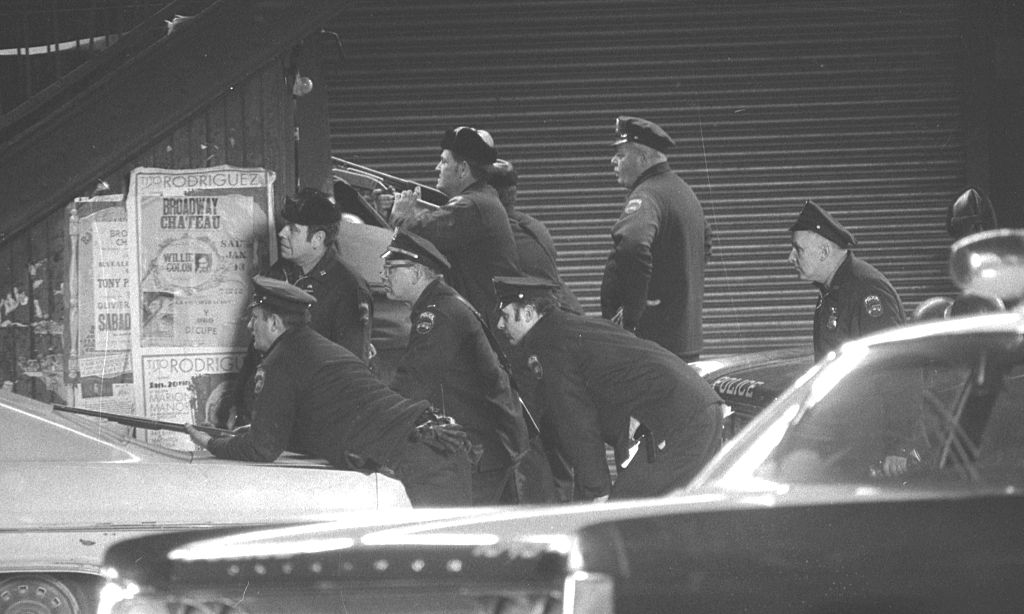
In the winter of 1973, a fatal, tense 47 hours at John and Al’s Sporting Goods store on the border of the Bushwick and Bedford-Stuyvesant neighborhoods of Brooklyn, N.Y., would forever change how the New York Police Department (NYPD) dealt with hostage situations.
On Friday, Jan. 19, of that year, four Black men in their 20s were stealing guns and ammunition at the shop when the police arrived. A shootout occurred, leaving one police officer dead and two wounded. The gunmen held 11 hostages inside the store. The 47-hour crisis was one of the longest hostage sieges in NYPD history.
With dozens of New Yorkers in the surrounding blocks unable to move while the situation was ongoing and thousands of subway commuters stopped as two train lines were halted, hundreds of police officers flooded the borough in preparation to carry out a brute-force attack. The move would risk the lives of the hostages trapped inside, but it was then standard procedure. It would also risk inflaming tensions between the police and the community.
Then Harvey Schlossberg, an NYPD officer with a doctorate in psychology, entered the picture. Using psychological tactics and patience, instead of endangering more lives through an attack, the siege was ended. “It takes time, but time is important only as an ego thing,” Schlossberg later said of his method of dealing with hostage crises. Later that year, the NYPD’s hostage-negotiation team was founded, and the tactics used at John and Al’s would become guiding principles.
“A two-day ordeal of blazing gunfights, death and terror at a Brooklyn sporting-goods store ended dramatically yesterday afternoon with a daring roof escape by nine remaining hostages and, several hours later, the peaceful surrender of four trapped gunmen,” the New York Times reported after the incident.
The story of what happened in 1973 at John and Al’s is the subject of a new documentary by director Stefan Forbes called Hold Your Fire. On Tuesday, the feature-length documentary was named as the winner of the second annual Library of Congress Lavine/Ken Burns Prize. It will receive a $200,000 grant for post-production costs.
“Ken and I were both awed by this documentary,” said Carla Hayden, the Librarian of Congress, in a statement. “Hold Your Fire is a searing and powerful look into a little-known moment in history that has profound repercussions for how we understand policing today.”
HOLD YOUR FIRE excerpt from InterPositive Media on Vimeo.
The film was selected out of a total of 150 submissions, and is especially timely, says Ken Burns.
“No matter how much we think things change, human nature doesn’t,” the filmmaker tells TIME. “What you have in the midst of all that we’re going through now, with regard to policing and race and the whole history of that, here is something taking place many decades ago that nonetheless speaks directly to our moment.”
What Hold Your Fire accomplishes, according to Burns, is that it allows the viewer to think outside the binary when judging the range of characters presented. “It introduces you to a bunch of characters that are fitting a pattern of who we think they are. And then as the film progresses, it does a wonderful thing. It permits everyone to escape being siloed by our conventional ideas about them,” Burns explains. That kind of complex, well-formed character is often lacking from our conversations, says Burns.
And today, looking back at those long 47 hours from nearly half a century ago might help us once again understand something new.
“In the case of history, you get far enough away from the event that you can begin to gain some insight through perspective,” says Burns. “That’s what I try to do with my work, and I know that’s what Forbes has done here.”
More Must-Reads From TIME
- The 100 Most Influential People of 2024
- Coco Gauff Is Playing for Herself Now
- Scenes From Pro-Palestinian Encampments Across U.S. Universities
- 6 Compliments That Land Every Time
- If You're Dating Right Now , You're Brave: Column
- The AI That Could Heal a Divided Internet
- Fallout Is a Brilliant Model for the Future of Video Game Adaptations
- Want Weekly Recs on What to Watch, Read, and More? Sign Up for Worth Your Time
Write to Anna Purna Kambhampaty at Anna.kambhampaty@time.com